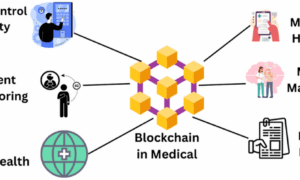Mental health is gaining the attention it deserves, yet accessing mental health care remains challenging for many. With rising stress levels, anxiety, and depression globally, finding timely support is crucial. Online therapy sessions have emerged as a revolutionary solution, making mental health care more accessible, affordable, and effective. This transformation is reshaping how individuals seek help and support for their mental well-being.
The Rise of Online Therapy Sessions
Traditional therapy often involves commuting to a psychologist’s office, scheduling appointments weeks in advance, and dealing with potential social stigma. Online therapy sessions have broken down these barriers. By offering flexibility and convenience, they allow individuals to consult psychologists from the comfort of their homes. This shift is especially beneficial for those living in remote areas or those with mobility issues.
Research suggests that online therapy can be just as effective as in-person sessions for treating conditions like anxiety, depression, and stress-related disorders. It empowers individuals to seek professional help without the logistical and social challenges often associated with traditional therapy.
Benefits of Online Therapy Sessions
1. Accessibility and Convenience
Online therapy sessions eliminate geographical constraints. Individuals in rural or remote areas can easily access qualified mental health professionals without traveling long distances. Flexible scheduling options also allow clients to book sessions outside of traditional office hours, making therapy more adaptable to busy lifestyles.
2. Affordability
Online therapy is often more cost-effective than in-person sessions. Without the overhead costs of maintaining a physical office, online psychologists can offer more affordable rates. Additionally, clients save on travel expenses and time.
3. Privacy and Comfort
Some people hesitate to seek therapy due to the fear of being judged or stigmatized. Online therapy provides a private and comfortable environment, reducing anxiety about attending sessions in person. This privacy encourages more people to consult psychologist without feeling self-conscious.
4. Wider Range of Services
Online platforms often provide access to various mental health services, including cognitive behavioral therapy (CBT), mindfulness training, and support groups. This diversity allows clients to choose treatments best suited to their needs.
5. Consistent Support
Online therapy offers consistent communication through chat, video calls, and emails. This multi-channel approach ensures that clients can reach out for support whenever they need it, enhancing continuity in care.
Challenges in Online Therapy and How They Are Addressed
While online therapy has numerous benefits, it also comes with challenges such as data security, lack of personal interaction, and technical issues. However, mental health platforms are addressing these concerns by implementing strong encryption methods, offering user-friendly interfaces, and providing technical support to ensure smooth sessions.
Therapists are also trained to build rapport in virtual environments, making the sessions as engaging and effective as traditional face-to-face meetings.
How to Choose the Right Online Psychologist
Selecting the right therapist is crucial for effective treatment. Here are a few tips to find the right online psychologist:
- Check Credentials: Verify the therapist’s qualifications, licenses, and areas of expertise.
- Read Reviews: Client testimonials can provide insights into the therapist’s approach and effectiveness.
- Consider Specializations: Choose a therapist who specializes in the mental health issues you are experiencing.
- Assess Communication Style: A good therapist should make you feel heard and understood. Schedule an initial consultation to gauge comfort levels.
The Future of Online Mental Health Care
As technology advances, online therapy is expected to become even more interactive and immersive. Virtual reality (VR) therapy, AI-driven mental health assessments, and mental health apps are paving the way for more personalized and effective care.
Moreover, the ongoing destigmatization of mental health issues encourages more people to seek help. Governments and organizations are also investing in mental health infrastructure, making online therapy an integral part of comprehensive healthcare systems.
FAQs
- Are online therapy sessions effective?
Yes, studies have shown that online therapy can be as effective as in-person sessions, especially for conditions like anxiety, depression, and stress. It offers flexibility and privacy, encouraging more people to seek help. - How do I know if an online psychologist is qualified?
Before booking a session, check the therapist’s qualifications, licenses, and areas of expertise. Reputable platforms display therapist credentials and reviews to help clients make informed decisions. - Is online therapy secure and private?
Most online therapy platforms use end-to-end encryption and secure servers to protect client information. It’s essential to choose licensed therapists on trustworthy platforms that prioritize data security. - Can I switch my online psychologist if I’m not comfortable?
Absolutely. Most platforms allow clients to switch therapists if they feel uncomfortable. It’s important to work with a therapist you feel connected to for effective treatment. - How much does it cost to consult a psychologist online?
The cost varies based on the therapist’s qualifications, session length, and platform. Generally, online therapy is more affordable than in-person sessions due to reduced overhead costs.
Conclusion
Online therapy sessions are reshaping the mental health care landscape by making support more accessible, affordable, and personalized. The ability to consult psychologists online breaks down barriers that once prevented people from seeking help. With continued advancements in technology and growing mental health awareness, online therapy is set to become a cornerstone of modern mental health care. Embracing this shift can lead to a more mentally resilient and healthier society.





























